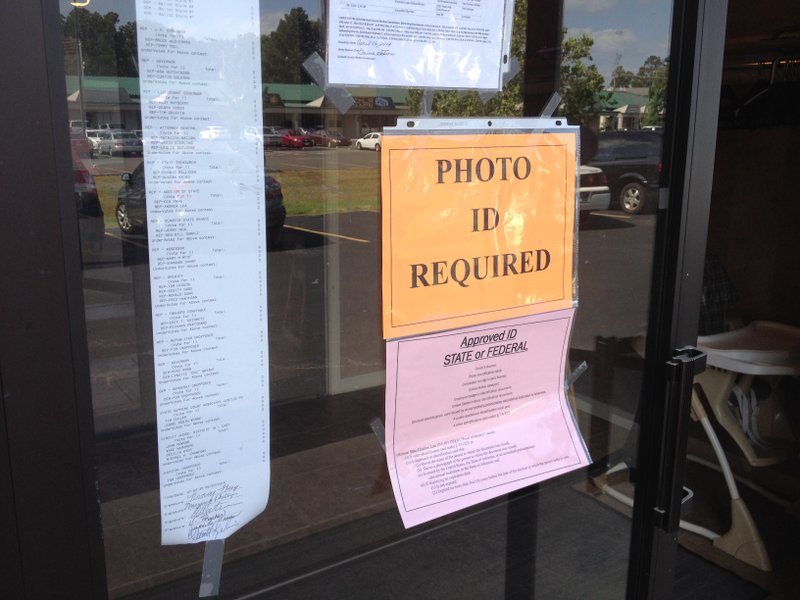HOT SPRINGS — For the first time in a statewide election since a new law went into effect, voters across Arkansas were required Tuesday to show identification before being allowed to cast their ballots.
Many said they didn't mind the added requirement, which was passed by the Legislature last year and went into effect Jan. 1, though some voters voiced concerns.
D.C. Hughes — a 59-year-old maintenance worker who cast his ballot at the Arkansas School for Mathematics, Science and the Arts in Hot Springs — said the new law prevents the possibility of voter fraud.
"This way we can find out the ones who are legit and the ones who are illegal," he said. "You can't be too sure."
John Brown, a 58-year-old worker at a golf course, said he thinks people have likely found ways to game the voting system in previous elections because there was no requirement to show identification.
And he said it could also help prevent confusion around common names like his.
"Look at my name," Brown said, noting he's encountered confusion getting hotel rooms and airplane tickets because of it. "I would rather see them ask for ID than not."
Ann Cromwell, 77, said she didn't mind having to show her ID to vote Tuesday, but she sees both sides of the issue, including the concern that some people without IDs might be excluded from voting.
"That's possible," she said. "But I also have the concern that you can manufacture something that isn't legal" without the law in place.
Mary Fowler, 81, said she favors the new law, adding anyone without an ID should be able to get one before an election.
"I think it cuts down on fraud," she said. "Some people say there's not much, but you never know."
Pine Bluff lawyer Robert Morehead, 78, told the Associated Press he disagrees with the new law.
"It's an opportunity to take advantage of the voting public and for the Republicans and Tea partiers to deny access to people who they consider their enemies — older people and minorities," he said. "It's as simple as that."
The Associated Press contributed to this story.
